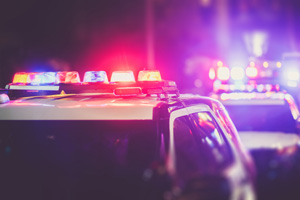 You’re driving down the road thinking about the upcoming day when you suddenly approach a DWI checkpoint. While you know that you aren’t intoxicated or in danger, the surprise inspection leaves you frightened and suspicious of the officer’s intentions.
You’re driving down the road thinking about the upcoming day when you suddenly approach a DWI checkpoint. While you know that you aren’t intoxicated or in danger, the surprise inspection leaves you frightened and suspicious of the officer’s intentions.
Many people respond to stressful situations with the police by recording the interaction. In Texas, it is legal to film, photograph, or record anything within a public place. You have a constitutional right to record a police officer. However, there are some limitations you must be aware of before recording.
Are DWI Checkpoints Legal In Texas?
DWI checkpoints in Texas are illegal. While there is no specific state law depicting this decision, the Texas state court’s interpretation of the Constitution believes DWI checkpoints violate the Fourth Amendment and are illegal within the state.
These inspections are often set up in areas with high drinking and driving rates and on holidays where drinking may be more common. DWI checkpoints may not intend to trap individuals, but many in Texas believe they infringe on an individual’s constitutional rights.
Can You Record a Police Officer During a DWI Checkpoint in Texas?
Recording a police officer will provide significant evidence if you are charged with a DWI within a checkpoint. Not only do you have the right to record in a public place, but the constitutional right to not partake in a DWI checkpoint. Police officers must have reasonable suspicion in order to pull you over for drinking and driving.
In stressful situations, you may wish to record the officer for evidence and safety reasons. However, there are times when you may not record an officer, including:
- Interferes with the officer
- Violates wiretapping laws
- Individuals break the law while recording the interaction
An officer may ask individuals to step back or not record the situation. Still, if you are not infringing on the investigation or breaking any rules, you may kindly remind the police of your rights.
What Is Texas’ Wiretapping Law?
In some states, recording audio footage may violate wiretapping and eavesdropping laws. However, Texas Penal Code § 16.02 allows audio recordings with the consent of at least one party in the conversation. If you are recording your own encounter with a police officer, you may use audio recordings because you are one of the parties involved in the conversation.
What to Do if I’m Arrested for Recording the Police During a DWI Stop?
You may feel overwhelmed and frustrated if an officer arrests you at a DWI stop. A DWI lawyer understands your challenges, and it’s essential to contact legal representation as soon as possible.
The following are steps you can take to protect yourself and your rights after a DWI arrest:
- Stay calm and polite
- Comply with their directions
- Gently remind the officer of your rights
- Contact your attorney immediately
While DWI checkpoints are illegal in Texas, officers may still set up blocks to catch drivers under the influence. You have the right to argue for your constitutional rights. With the assistance of an experienced DWI lawyer, you may reduce the likelihood of severe legal DWI consequences.
Speak With an Experienced Texas DWI Lawyer at Sophia Martinez Law
With accessible recording devices like dashcams and cellphones, recording law enforcement has become an increasingly important factor in holding officers accountable for inappropriate and illegal behavior. You have the right to record your encounter, and when you work with Former Assistant District Attorney Sophia C. Martinez, you can feel confident in your legal representation. She offers her services in both English and Spanish, so you may comfortably discuss any concerns or questions about your case.
Work with our team at Sophia Martinez Law and protect your rights today. Call (210) 226-3000 or fill out our contact form to learn how we can help you.
